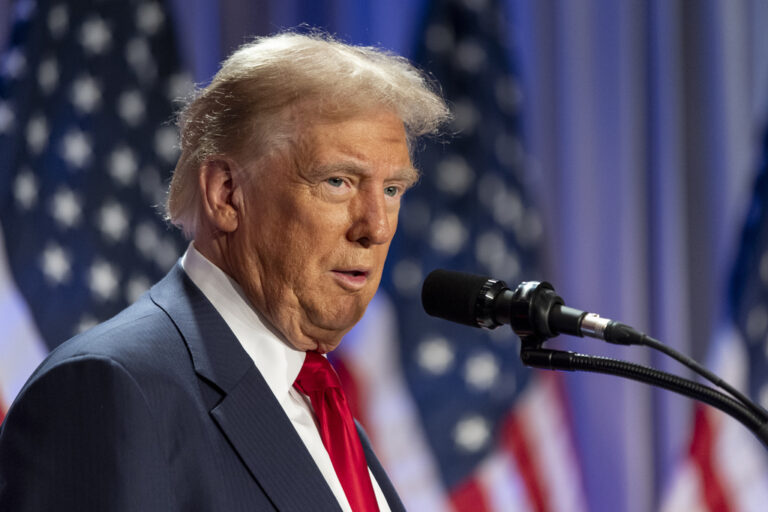 Even among Mitt Romney’s longtime supporters, one fear about his potential return to presidential politics stands out: the lingering perception the former private equity executive cares only about the fate of wealthy Americans.
Even among Mitt Romney’s longtime supporters, one fear about his potential return to presidential politics stands out: the lingering perception the former private equity executive cares only about the fate of wealthy Americans.
Romney knows it, too. In his so-far private conversations about a prospective third run for the White House, he has told would-be backers that improving the lives of poor and middle-class Americans would be at the top of his 2016 agenda.
“What he was most passionate about in our conversation is breaking the cycle of poverty in this country,” said Bill Kunkler, one of Romney’s past top national fundraisers, who received a call from Romney this week. “That really, really bothers him.”
There are concerns among Republicans that Romney is a two-time loser in the race for president whose “turn” has come and gone. But in interviews with several Romney supporters, many pointed to what political professionals describe as his empathy problem. Among voters who wanted a president who “cares about people like me,” only 18 percent supported Romney in 2012, compared with 81 percent for President Barack Obama, according to exit polls.
Those low marks came after a campaign filled with high-profile missteps tied in some way to money. The son of an auto company chief executive who made a fortune in finance measured in the hundreds of millions famously described corporations as people and highlighted his close friendships with the owners of professional sports teams.
No gaffe was bigger than Romney’s remark — secretly recorded at a high-dollar Florida fundraiser — that he doesn’t worry about 47 percent of Americans who “believe they are victims” and “pay no income tax.”
As Romney prepares to speak Friday night at the winter meeting of the Republican National Committee — his first public appearance since word spread he was thinking about another run — former allies worry aloud that his image as an out-of-touch millionaire threatens to derail a return campaign engagement before it begins.
“I think this is a perception problem more than a reality problem, but I think somehow he has to convince caucus-goers and the rest of the American people that he does care about all segments of society,” said Steve Scheffler, an RNC member from Iowa.
That work is already underway. Aides to Romney say he has started to craft a 2016 platform focused on three priorities: making the world safer, helping the middle class and combating poverty. In particular, poverty has been a dominant theme as Romney continues daily phone calls to former supporters to gauge their interest in his making a run.
It’s also work that’s recent. Romney has spent much of the last two years on the sidelines of politics, working at times to help his Republican colleagues raise money, but largely avoiding substantive talk about policy issues such as poverty.
“Mitt learns from experience, and if he does run, he will run the strongest campaign yet,” longtime Romney adviser Eric Fehrnstrom told The Associated Press on Thursday. “Whatever the issues in the last campaign, the people are still open to him.”
Fehrnstrom is among the small group of senior aides helping Romney decide his political future. He said voters need only look at Romney’s life to understand what kind of man he is.
“In service to his family, his church, his community and the nation, his care for others extends to all people, most especially the poorest among us,” Fehrnstrom said.
Romney’s team suggests he will make a decision about the 2016 campaign soon, both out of fairness to the other candidates contemplating bids and former allies who had begun move on. Those potential rivals are among those who may strike at Romney on this issue. Indeed, some already have.
In his 2013 book, Wisconsin Gov. Scott Walker, a 2016 presidential prospect who will address RNC members Thursday night, slammed Romney for allowing Obama to convince voters he was out of touch. It would be a mistake, Walker said Thursday before his speech, for the GOP to pick a nominee open to such a critique in 2016.
“I think Mitt’s a good man and he would have been a good president,” Walker said. “But I think, particularly when you look at where things shape up in two years, it’s pretty hard to make an argument about going forward when you’re arguing about people and ideas from the past.”
It’s for that reason, as much as any other, that Republicans gathered in San Diego this week suggested Romney would not cruise to the party’s nomination in 2016 as he did in 2012.
“People are interested to see who else will emerge,” said Susan Hutchison, who now leads the GOP in Washington state and was an early Romney supporter in the last election. “We need someone with wide appeal to people of all walks of life and from all cultures that make up the tapestry that is America.”
(AP)











One Response
He could decide to express some radical and bold positions instead of trying to pick views based on polls. For example, as a Mormon one can expect he is sympathetic to most immigration, so he could adopt “liberal” positions similar to Marco Rubio. He has a law degree and belongs to a group that has had to worry about persecution, so he can become very concerned about civil liberties, similar to Rand Paul. He can put an emphasis on facilitating charities rather than having a state imposed welfare state, which fits right in with his personal background. He could “etch a sketch” into something interesting and electable, and do so by being “true to himself”.
But he is a politician, and he probably won’t be nominated, not elected.